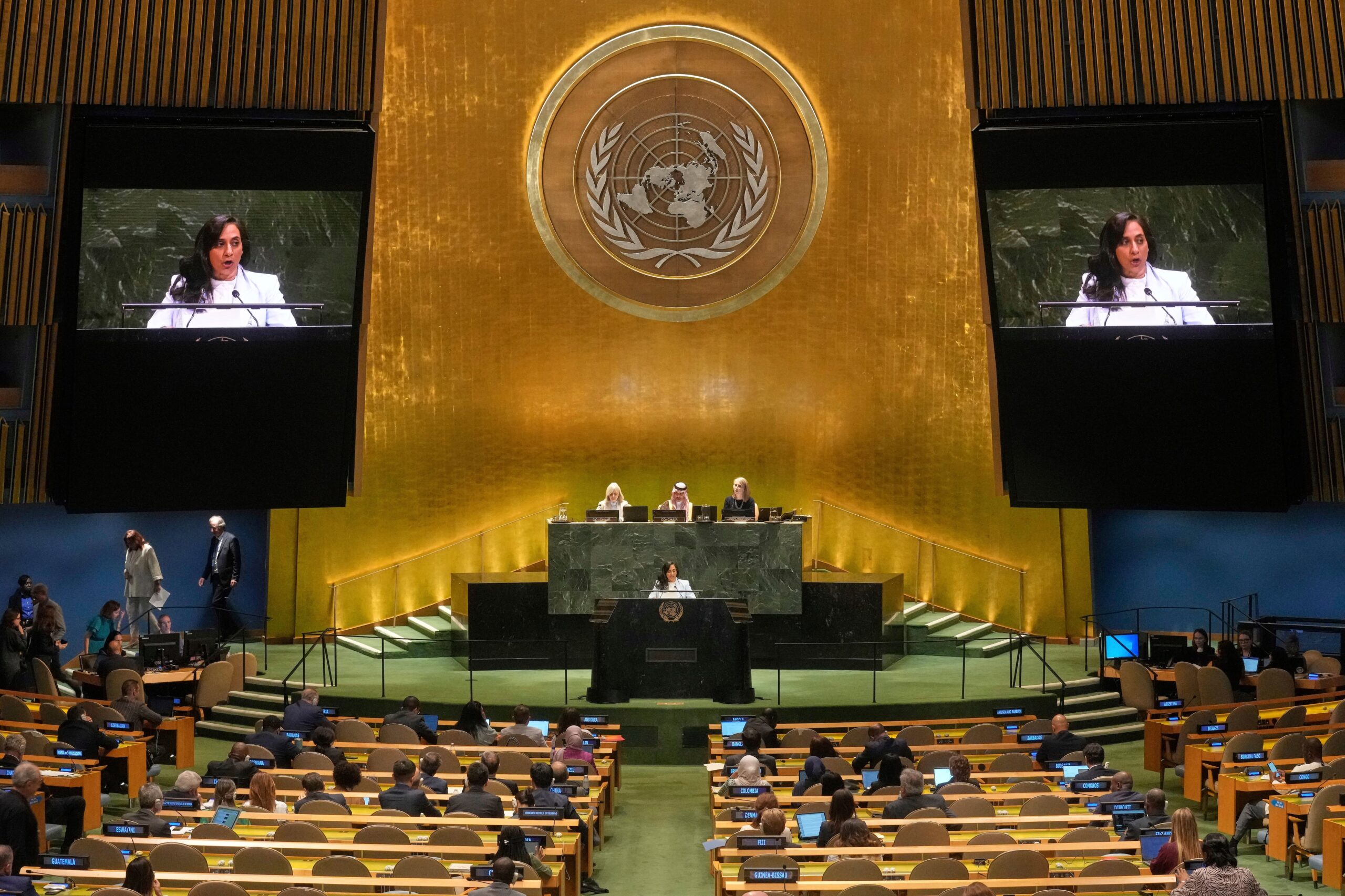TanzaniaJoining France and the United Kingdom in increasing pressure to put an end to the nearly 80-year Israeli-Palestinian conflict, Canada and Malta declared Wednesday that they will recognize the state of Palestine in September.
Following a Cabinet meeting, Canadian Prime Minister Mark Carney made the news. Earlier at the U.N. General Assembly discussion on a two-state solution to the conflict, which was extended to a third day due to the large number of countries wishing to speak, Christopher Cutajar, permanent secretary at Malta’s Foreign Ministry, made the announcement on behalf of his country.
Suggested Videos
According to Cutajar, Malta has long backed Palestinian self-determination and, as responsible parties, we have an obligation to try to make the idea of a two-state solution a reality.
According to him, this is the rationale for Malta’s government’s decision to formally recognize the state of Palestine at the next U.N. General Assembly in September.
According to Carney, Canada will likewise make its declaration during the yearly summit of world leaders, which begins on September 23. In 2026, the Palestinian Authority is expected to hold general elections in which Hamas will not be allowed to participate, and the goal is to demilitarize the Palestinian state, he stated. In a letter dated June 10, Palestinian President Mahmoud Abbas made such commitments; it is unclear what else Carney is looking for.
Malta declares its desire for a sustainable peace in the Middle East.
Robert Abela, the prime minister of Malta, had earlier on Facebook stated that his country, a former British colony, has decided to recognize a Palestinian state as part of its efforts to bring about a permanent peace in the Middle East.
The European Union member and Mediterranean island nation will recognize the state of Palestine alongside over 145 other states, including more than a dozen European countries.
Prior to this week’s conference, French President Emmanuel Macron declared that his nation would recognize the state of Palestine at the 193-member General Assembly, which begins on September 23.
Prime Minister Keir Starmer of the United Kingdom said Tuesday that if Israel commits to a truce and a long-term peace process during the next eight weeks, Britain will not recognize the state of Palestine before the September summit.
The largest Western powers are France and Britain, and together with Canada, three of the Group of Seven major industrialized nations have now committed to this.
Israel and the United States, its closest ally, are boycotting the meeting because they are against a two-state solution.
Danny Danon, Israel’s ambassador to the United Nations, harshly criticized the 125 nations attending the conference and the recent recognition of a Palestinian state on Tuesday, claiming that while some nations in the world combat terrorists and extremist groups, others ignore them or choose appeasement.
Instead of making an effort to free our hostages, these nations prefer to make empty rhetoric while they are wallowing in the terror tunnels of Hamas in Gaza, Danon added. This is a waste of time and hypocrisy that separates any possibility of regional progress and legitimizes terrorism.
“Recognition is not merely symbolic; it is a concrete step towards the realization of a just and lasting peace,” cutajar of Malta retorted.
Urgent action is required.
In addition to expressing their unshakable support for a two-state solution, high-level speakers at the U.N. conference on Tuesday encouraged Israel to commit to a Palestinian state and asked those nations that have not yet recognized the state of Palestine to do so as soon as possible.
A staged strategy to settle the Israel-Palestinian conflict and the ongoing war in Gaza is outlined in the seven-page New York Declaration. The ultimate goal of the plan would be for Israel and Palestine to coexist peacefully as an autonomous, demilitarized Palestine and eventually become part of the larger Middle East.
In a separate, one-page statement titled the New York Call, which was approved late Tuesday by fifteen Western countries, they state that they have acknowledged, expressed, or are willing to consider, as a necessary first step toward the two-state solution, the state of Palestine, and they invite all other nations that have not done so to join this call.
It comprised nine countries, including Malta and Canada, that had not recognized the state of Palestine and six that had. Andorra, Australia, Finland, Luxembourg, New Zealand, Portugal, and San Marino are the seven countries that have yet to do so.
Following the 128th and final speaker, Saudi Arabia’s ambassador to the U.N., Abdulaziz Alwasil, announced that a conclusion document had been submitted to all 193 U.N. member countries, and he suspended the meeting until further notice. The agreement must be endorsed by states before the beginning of September.








